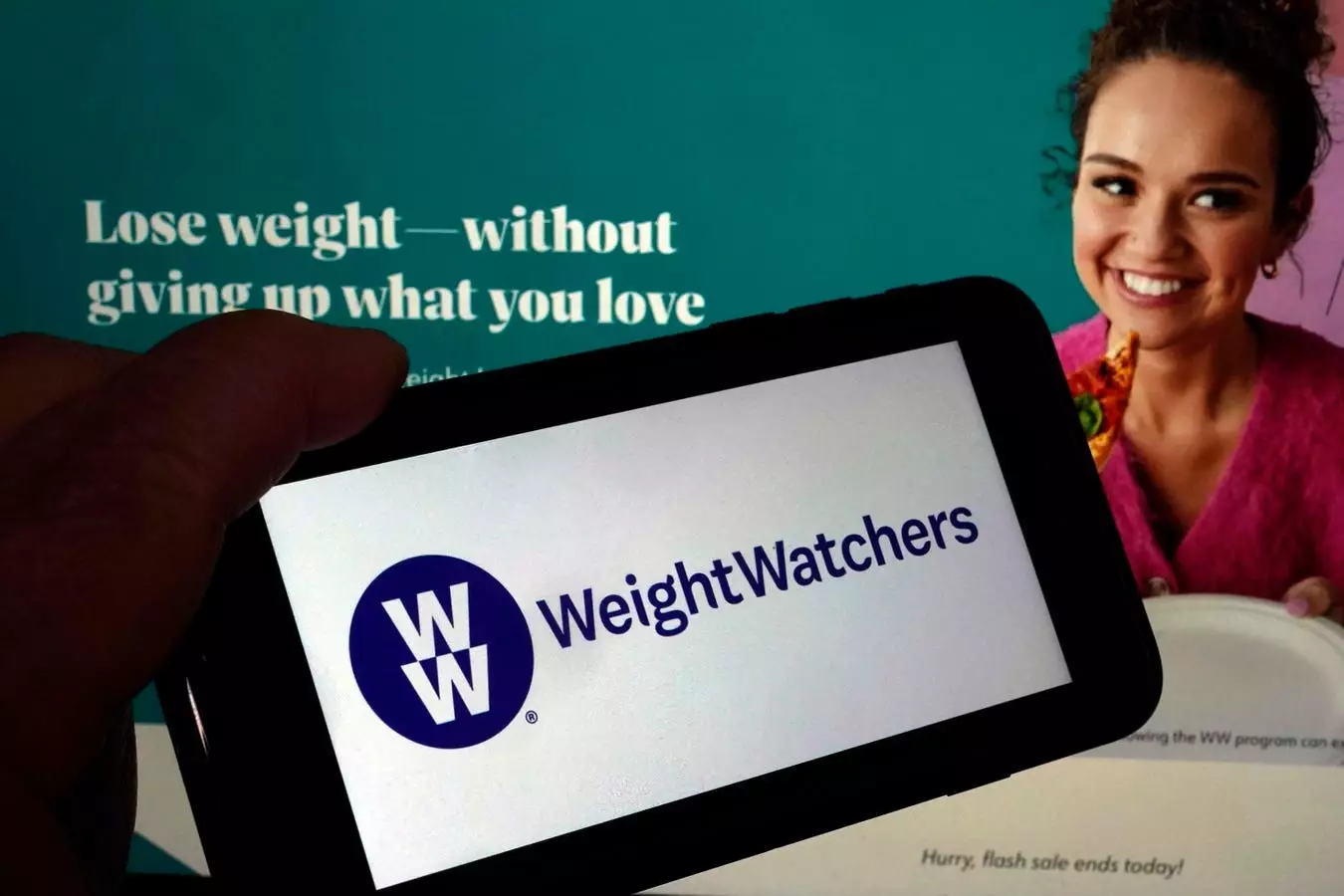The impending bankruptcy of WW, formerly known as WeightWatchers, is not merely a financial saga; it represents a profound societal change. For years, WW served as a beacon for those seeking communal support in their weight-loss journeys, leveraging shared experiences through workshops and weigh-ins. However, as digital solutions like apps and medications gain prominence, the discussion now revolves around whether the essence of wellness has been lost in a clinical-focused, convenience-driven landscape.
WW’s strategy to evolve by integrating technology like telehealth reflects a broader shift where the metrics of health are increasingly understood through a clinical lens. Essentially, we are witnessing a transition from community to algorithm, a move that prioritizes medical outcomes over emotional connections. This shift raises critical questions: what does it mean for our relationship with food and health when support structures dissolve, replaced by the solitude of personal apps and prescribed medications?
The Medicalization of Weight Loss
In recent years, the medical community has taken a more prominent role in addressing obesity, moving towards a model that emphasizes pharmaceutical interventions. The endorsement of GLP-1 medications such as Ozempic has changed the narrative around weight loss, indicating that biology can indeed have a significant impact. However, while research illustrates the efficacy of these medications, it also underscores an unsettling trend: a dilution of the social context surrounding weight management.
This medical-centric approach holds both pros and cons. On one hand, it lessens the stigma surrounding obesity, acknowledging it as a condition rooted in biology rather than mere personal failures. Conversely, by reducing a multifaceted issue to a biological one, we risk overlooking the systemic factors that contribute to personal health – factors such as socioeconomic status, environmental influences, and access to nutritious food. Without considering these broader conversations, we risk perpetuating the same stigma we are trying to eliminate.
The Challenge of Digital Engagement
WW has attempted to modernize through app enhancements and web-based interventions, asserting that digital resources can meet contemporary consumer expectations. However, while these digital tools have shown short-term effectiveness, they often fail to foster sustained engagement in the long run. A 2019 meta-analysis highlighted that reliance on digital interventions may lack the necessary accountability and social support found in in-person models.
Moreover, while telehealth services have been shown to provide comparable results to traditional weight management techniques, patient satisfaction often leans heavily towards in-person interactions. It appears that the convenience of accessing care at our fingertips does not quite replace the human touch, the laughter, and the emotional support that characterized WW’s physical meetings. As many individuals yearn for connection, losing that community may prove more detrimental than the benefits of a digital-only approach.
Generational Shifts in Wellness Perspectives
WW’s struggles are further exacerbated by changing perceptions among younger generations. Gen Z and Millennials, often described as more mindful and conscientious in their health approaches, are gravitating towards concepts like intuitive eating and sustainable food consumption. These populations are less inclined to subscribe to strict dieting mechanisms such as point systems; instead, they seek authenticity and mental wellness as integral components of their health journey.
Interestingly, Baby Boomers and Generation X, once steadfast advocates of WW’s meeting model, find themselves exploring digital solutions but often lamenting the loss of face-to-face interactions. A Pew Research Center report indicates that while these generations are adapting to new technology, they still value the emotional connections that come from shared experiences and community engagements. This dissonance reflects how essential human interaction remains, irrespective of age.
Reimagining Wellness in a Digital Age
The decline of WW embodies a larger conversation about the void created when shared spaces for food and communal care begin to disappear. With a focus shifted towards individualism and technological reliance, we may gain efficiency, but at what cost? The character and warmth associated with collective efforts are replaced with a sterile escapade devoid of laughter, encouragement, and empathy.
Perhaps it is time for society to re-evaluate its relationship with wellness. As we forge ahead into an era rife with AI diets and subscription models, we must assess the cultural implications of disengaging from human interactions. The remnants of wellness models like WW shed light on a necessary truth: the power of community and shared empathy cannot be underestimated. As we navigate the complexities of modern health practices, it becomes vital to integrate technology with the human spirit that once fostered profound connections among individuals. Where will our journey take us if those spaces, once bustling with like-minded souls, remain silent?

